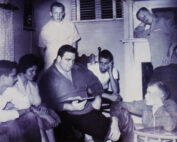Cyber drugs for boys: Online video gaming, video games. Are video games addictive?
Poor grades, lying, mood swings, staying up all night, and conflicts with parents. At first glance it sounds like addiction to drugs or alcohol. In truth it’s a description of a 15-year-old who has become addicted to playing an online video game. To be more specific, addicted to a massive, multi-player online role-playing game (MMO). Popular titles in this fantasy game genre include EverQuest, and World of Warcraft. With game consoles like Wii, PlayStation 3, Xbox 360, and others which can access the internet, the MMO world is truly, massive.
Not long ago most professionals, myself included, scoffed at the idea that one could become addicted to video games. I was wrong. Teenage boys are particularly vulnerable to the genre of violent, frequently sexual, online role-playing games. The prevalence of video game addiction is unclear. A 2007 British study polled 7,000 “online gamers” and found that 12 percent met the World Health Organization criteria for addiction. My sense is that the number of teens in trouble with online gaming is increasing rapidly.
Unlike more traditional video games, multi-player online games involve an unlimited number of players who form clans and guilds as part of the gaming strategy. In these games, the more time players spend online, the more they are rewarded and the faster they advance. Conversely, when a player is not actively participating in a game he falls behind other players. In EverQuest, for example, there are “cyber traps, that require a player to spend 100 hours sitting in single locations in order to kill hundreds and sometimes thousands of cyber enemies to advance to the next level. To catch up, young players often binge all night or spend an entire weekend online. And here is the kicker— the game never actually ends.
What’s also a little creepy about these games is the role-playing component. Players are required to assume mythical, pseudo identities which allow them to reinvent who they are and project their pseudo personality online. As a result, bizarre, fantasy friendships and alliances with other online gamers are formed, and like real world relationships, influence how they see and value themselves. The interactive and social aspects of the game provide a sense of belonging and acceptance that many boys struggle to attain in the real world.
What are the symptoms of online gaming problems? The main indicator is that the teenager is spending the majority of non-structured time online. Other signs include:
- Mental preoccupation with the game.
- Repeated online binges lasting five hours or more.
- Isolation from friends, parents and family activities.
- Dropping grades.
- Sleep problems, falling asleep in school.
- Lying about computer or video game use.
- Choosing to play video games rather than being with friends.
- Dropping out of social groups, activities or sports.
- Increasingly irritable when not playing a video game.
- Mood swings including depression and persistent negative attitude
- Conflicts with parents regarding chores, responsibilities, and time on the computer
The content and themes of multi-player online role-playing games are extremely violent, sometimes sexual, or both. The impact of this violence and potential for addiction varies among users and is dependent on numerous and largely unknown factors. However, the potential damage to the psyche of preteen and teenage boys is worrisome because these games provoke strong emotional reactions and clearly desensitizes their perception and response to violence.
Teenage boys crave action, excitement and adventure. They can’t help it—it’s how they are wired. At the same time they crave acceptance and to be emotionally connected with others in meaningful ways. In the absence of healthier alternatives they will not hesitate to gratify these needs in the dark corners of cyberspace. It’s up to parents to step in, take charge, and rescue their sons.
Stay Updated
Sign up for our monthly newsletter and weekly devotional











